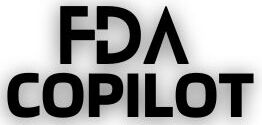NeOnc Technologies, a biotech company from Westlake Village, California, is pioneering a new method for treating aggressive brain cancers, such as glioblastoma, by circumventing the blood-brain barrier through intranasal drug delivery. The company’s primary innovation, NEO100, uses perillyl alcohol (POH), a natural compound found in essential oils, delivered directly to the brain via inhalation, targeting cranial nerves which can transport drugs across the blood-brain barrier.
Traditionally, the treatment for glioblastoma involves surgery, chemotherapy, and radiation, with temozolomide (Temodar) being the standard drug administered orally or through injection. However, the efficiency of these treatments is hindered by the blood-brain barrier, a challenging obstacle for effective drug delivery to the brain. According to NeOnc CEO Thomas Chen, a neurosurgeon and professor at USC, while some drugs like certain migraine medications use a similar intranasal delivery method to target the central nervous system, POH’s challenge in previous formats was its poor bioavailability and significant side effects at higher oral doses.
The new approach, inspired by the successful intranasal delivery tests conducted in Brazil by a NeOnc co-founder, uses a technology licensed from USC that allows for the production of pharmaceutical-grade POH. Administered using a commercially available nebulizer, this method has shown promising safety and tolerability in a Phase 1 trial with 12 glioblastoma patients. Although the cancer returned in some, an average extended survivability and better responses in patients with specific genetic markers (a mutation to IDH1 enzymes) were noted, providing a beacon of hope for personalized cancer treatment. NeOnc’s continuing Phase 2a study is focusing on patients with these IDH1 mutations, with an aim to further validate the efficacy of NEO100.
The path to making this innovative treatment available to the public has been unique, mirroring the drug’s unique delivery strategy. Initially, NeOnc aimed for a traditional initial public offering (IPO) to raise about $75 million but faced challenges due to lukewarm interest from institutional investors, who are currently cautious and prefer investing in companies with drugs in later stages of testing or those already having Phase 2 data. In light of these difficulties and a seemingly closed IPO window for biotech firms over the past two years, NeOnc withdrew its registration statement and instead raised $18.5 million through a combination of equity financing and conversion of debt to equity. Now, NeOnc is opting for a direct listing, a less common approach in biotech, given the firm’s need for substantial capital for research and development. This method involves selling existing shares held by insiders directly to the public without issuing new shares, thus avoiding dilution and bypassing underwriters, which can reduce costs associated with going public.
Examples of direct listings in other sectors, like Spotify’s in 2018, offer a precedent, though such moves have been rare in the life sciences. Another biotech company, FibroBiologics, also opted for this rare route, completing its direct listing in early this year. The direct listing approach could offer benefits for well-capitalized companies that don’t need immediate additional funding, allowing them to maintain control over the process and potentially democratizing public access.
As NeOnc prepares for its direct listing, set against a backdrop of a possibly reviving biotech IPO market with new filings and terms from companies like BioAge Labs and developers of bispecific antibody drugs, the company remains focused on its near-term goals. NeOnc aims to wrap up patient enrollment for its Phase 2a trial by the end of 2024 and expects to present preliminary data by mid-2025. In addition, NeOnc continues its work on other programs using NEO100 as a delivery system for other therapies targeting the brain, including preclinical research on uses like delivering Parkinson’s disease drug levadopa.
In summary, NeOnc Technologies is at the front line, developing groundbreaking methods not just in treating glioblastoma but also in navigating the complex paths of biotech financing and public market entry, reflective of its innovative approach in medical treatment.
#Biotech #Nose #Treat #Brain #Plots #Alternative #Path #Public #Markets



